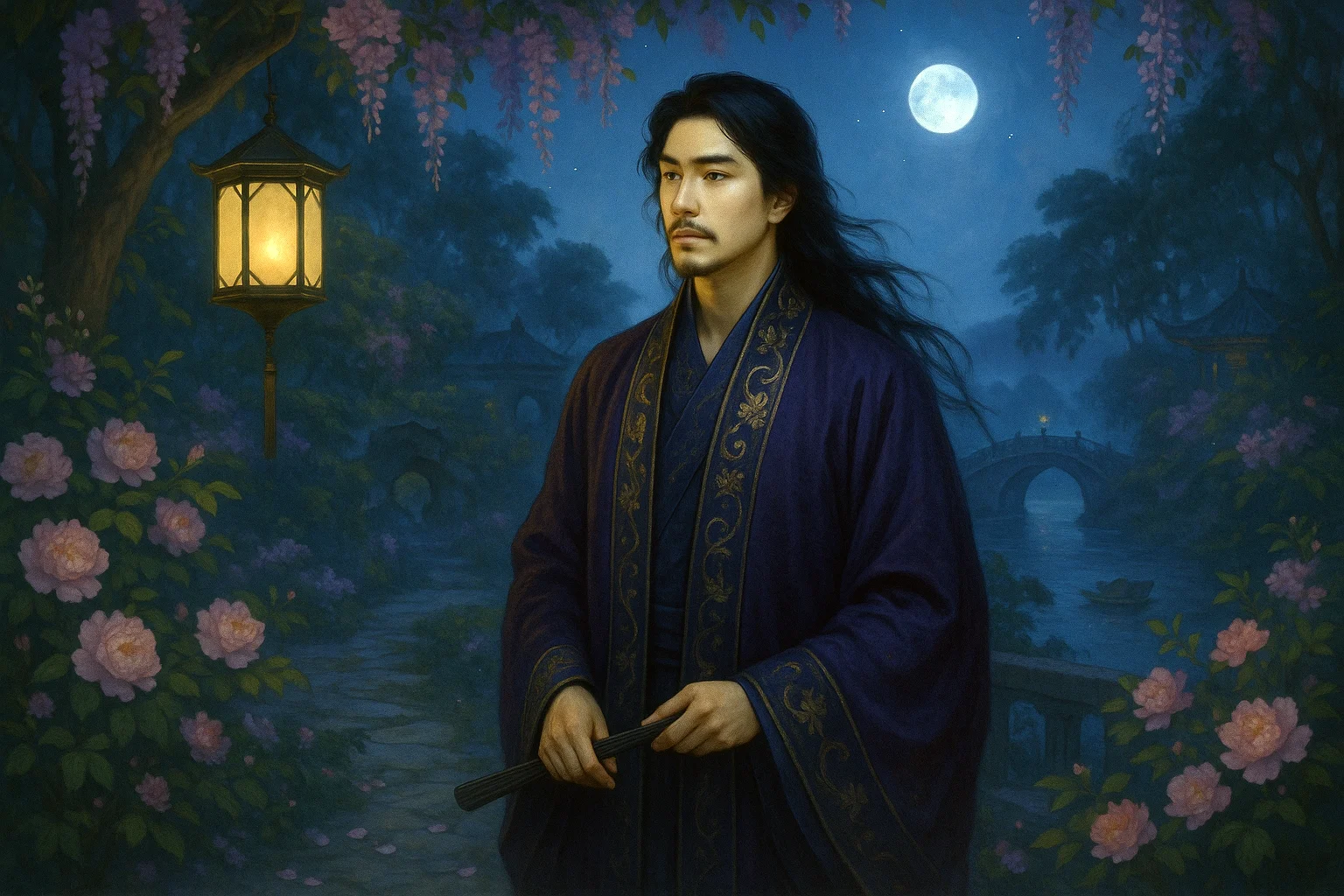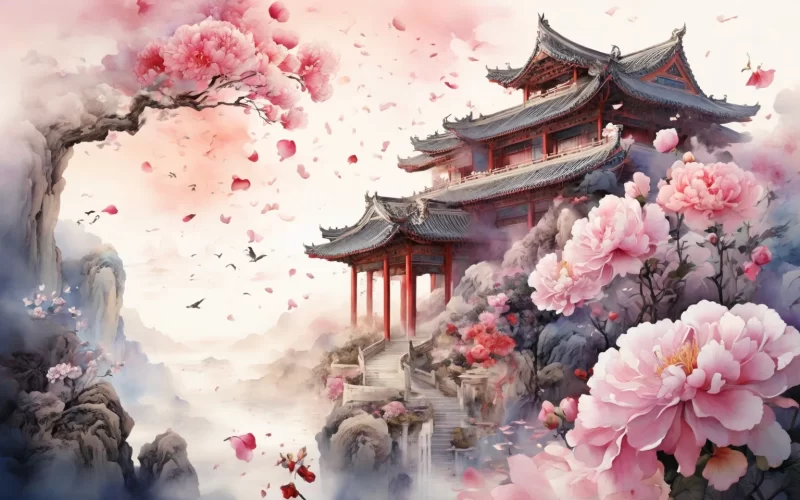I ponder on the poem of The Precious Dagger.
My road has wound through many years.
...Now yellow leaves are shaken with a gale;
Yet piping and fiddling keep the Blue Houses merry.
On the surface, I seem to be glad of new people;
But doomed to leave old friends behind me,
I cry out from my heart for Xinfeng wine
To melt away my thousand woes.
Original Poem
「风雨」
李商隐
凄凉宝剑篇, 羁泊欲穷年。
黄叶仍风雨, 青楼自管弦。
新知遭薄俗, 旧好隔良缘。
心断新丰酒, 销愁斗几千。
Interpretation
This poem was composed by Li Shangyin during a period of political frustration and personal adversity, expressing his profound grief and helplessness. A talented poet caught in the crossfire of court factionalism, he struggled to realize his ambitions. Living in exile and witnessing the fickleness of human relationships, he compares himself to autumn leaves drifting in the wind while the successful remain immersed in pleasure. The poem's intense emotion resembles a lament of fate, singing of the poet's misfortunes and righteous indignation.
First Couplet: "凄凉宝剑篇,羁泊欲穷年。"
Qīliáng bǎojiàn piān, jī bó yù qióng nián.
My "Sword Song" fills with desolation; In exile I may waste my years away.
The "Sword Song" originally symbolized heroic spirit, but the poet prefixes it with "desolate," implying thwarted ambitions and rootless existence. This recalls how Guo Zhen gained fame through his "Sword Song," while the poet remains trapped in adversity. The stark contrast between lofty ideals and harsh reality establishes the poem's melancholy tone.
Second Couplet: "黄叶仍风雨,青楼自管弦。"
Huáng yè réng fēngyǔ, qīnglóu zì guǎnxián.
Yellow leaves endure wind and rain; Brothels keep their music playing.
Environmental contrasts heighten the poet's isolation. "Yellow leaves" symbolize his drifting life and decline, while "wind and rain" represent worldly hardships. Meanwhile, brothels continue their revelry - a striking juxtaposition that reveals society's indifference and deepens the poet's anguish.
Third Couplet: "新知遭薄俗,旧好隔良缘。"
Xīn zhī zāo bó sú, jiù hǎo gé liáng yuán.
New friends meet vulgar prejudice; Old bonds are severed by cruel fate.
The poet laments human coldness: new acquaintances face slander while old friendships lie broken. This reflects both his personal plight and political marginalization - unable to form new alliances or maintain old connections in the factional court, leaving him utterly isolated.
Fourth Couplet: "心断新丰酒,销愁斗几千。"
Xīn duàn xīnfēng jiǔ, xiāo chóu dǒu jǐ qiān.
My heart breaks with Xinfeng wine - How many cups to drown this grief?
The poet seeks solace in wine but knows no amount can truly help. The reference to Xinfeng wine alludes to Ma Zhou's story of meeting a patron through drinking, but the poet realizes no such opportunity awaits him. The rhetorical question intensifies his sorrow, bringing the poem's grief to its climax.
Writing Characteristics
- Vivid Contrasts, Intense Emotion
Skillful contrasts - yellow leaves versus brothels, new versus old friends, the heroic "Sword Song" versus desolation - highlight the poet's unrecognized talent and rootless existence. - Natural Allusions, Deepened Meaning
The "Sword Song" references Guo Zhen's story; Xinfeng wine recalls Ma Zhou's opportunity. These allusions enrich the poem's significance. - Emotion Through Scenery, Grief in Imagery
Drifting leaves mirror the poet's solitude; brothel revelries accentuate his neglect. This creates a powerfully moving atmosphere of desolation and indignation.
Overall Appreciation
With mournful elegance, this poem portrays the poet's rootless existence and political failures. Beginning with career frustrations, it progresses through autumn leaf imagery symbolizing misfortune, contrasts revealing society's cruelty, and concludes with futile attempts to drown sorrows in wine. Though brief, its intense emotion forms a moving lament of talent unrecognized and dreams unfulfilled.
Insights
More than personal expression, this poem reflects the shared fate of unrecognized talent in feudal society. The poet's grievances about reality, frustration with failed ideals, and lament over rootless existence give the poem timeless resonance. It reminds us that while talent matters, opportunity and environment are equally crucial. Facing adversity, we may not change fate but can preserve inner conviction, refusing to let despair extinguish hope.
Poem translator
Kiang Kanghu
About the poet

Li Shangyin (李商隐), 813 - 858 AD, was a great poet of the late Tang Dynasty. His poems were on a par with those of Du Mu, and he was known as "Little Li Du". Li Shangyin was a native of Qinyang, Jiaozuo City, Henan Province. When he was a teenager, he lost his father at the age of nine, and was called "Zheshui East and West, half a century of wandering".












